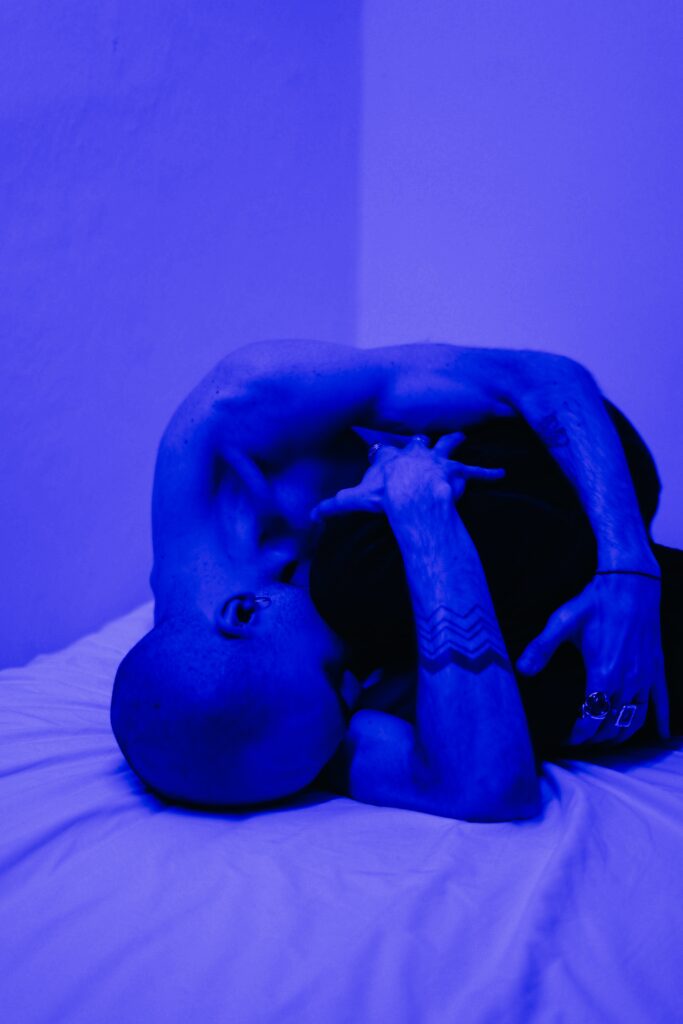Reflections on Health and Spirituality
I’m not a young man by any stretch of the imagination. I’m one of those spectral older guys you’d pass on the street any day—except that you wouldn’t have noticed. We’re invisible to younger folk. For almost the whole time I’ve been around, I’ve lived in an atmosphere of anxiety. I say “atmosphere” because, like the air I breathe, it permeates me to the cellular level. What does it feel like? It’s a fear of failure, a fear of making a mistake, a fear of shaming myself, a fear of doing or saying something inappropriate. Like anyone feeling uncomfortable, I’ve wanted to know the reasons why.
At first, I blamed it on my mother. Because she could be verbally, emotionally, and sometimes even physically abusive, she became a convenient “cause” for my anxiety. It made me feel terminally unique all through my early school years. Even then, I recognized that it wasn’t typical pre-teen or teenage angst. My experience actually was different. Try as I might, I just could not seem to “get” how social interactions worked. I couldn’t figure out what the rules were that almost everyone else seemed to be playing by. I felt sad and isolated, of course, but mainly frustrated and anxious because it felt like I was lacking something all my peers seemed to have.
Girls very often made fun of me. They didn’t feel safe. Boys weren’t much better, but I occasionally found someone who was willing to “put up” with me (or so it felt). As I grew older, I always seemed to want something deeper with them—something that never really materialized. Then, in 1964, I read an article in Life Magazine that changed everything. I saw the word “homosexual” in print for the first time. It jumped off the page at me. At last, I had an idea what my “problem” was. I really was different. No wonder I couldn’t relate. That didn’t “solve” the “problem,” but it allowed me to make a separate peace.
Early on, I was attracted to a profession that provided me the environment I needed: a kind of isolation, a built-in influence or authority, and acceptance, but always as an authority figure, never as a peer. Peer relations tended to be superficial and sometimes rocky. My relationship with the people I was to serve was cordial but distant and yet, at time, not always appropriate. I discovered that alcohol helped greatly to medicate the anxiety. Early on, when I drank, I isolated further. Later, it not only numbed the constant nagging angst, it removed inhibitions.
I entered into a string of intimate relationships. Always, I was the dependent, needy one. I was attracted to guys younger than I. They tended to look up to me—something I needed. Guys my own age confused me. Attractions were seldom mutual. As a result, my intimate relationships tended to be short-lived and end unpleasantly (do relationships ever end pleasantly?).
The older I got, the more troublesome my anxiety became. I avoided social situations whenever possible and, when I couldn’t, I generally stood off by myself or glommed onto someone I knew very well. Although I could speak extemporaneously to large gatherings, in social settings I would get easily tongue-tied and forget my words as the anxiety grew. The worst was watching certain movies or TV shows. When the suspense got too great, or I could see characters heading into humiliating situations (e.g.: situation “comedies”), the anxiety would become overwhelming. Too embarrassed to get up and leave, I’d either bury my face in my hands or literally curl up in my seat. My anxiety was getting in my way, so I sought professional help. I was diagnosed with social anxiety disorder and prescribed antidepressants. They helped a little.
Finally, suitably married and retired from a number of more-or-less successful careers, I read a fiction piece about a boy with autism. All at once the pieces fell together. I could relate. I read up on ASD (autism spectrum disorder) and learned all I could. There it was: the inability to read social cues, the constant low-level anxiety (and the strange and ineffective anxiety management techniques), and the exaggerated reaction to certain situations, among others.
What allows me to live nearly anxiety-free today is actually the practice of mindfulness, coupled with a strong dose of acceptance, and a loving husband who’s understanding and willing to work with me and my somewhat unusual needs. Practicing mindfulness and daily meditation keeps me conscious of the effects my environment is having on me and my reactions. It gives me the choice I need either to engage or disengage based on my anxiety level. It allows me to ask for what I need to function effectively. If I don’t understand what’s going on, I take my husband aside and he explains it to me patiently. That’s where the acceptance comes in: I have no need to deny or medicate or feel ashamed of my feelings.
Mindfulness, awareness, or consciousness are a necessary foundation for living a happy, essentially anxiety-free existence. However, sometimes that alone is not sufficient. Sometimes, it’s necessary to work to gain the understanding necessary to interpret what our mindfulness is presenting to us. That’s why I’ve written this piece. Just perhaps someone else who’s lost in an anxiety-riddled life might be inspired by this to dig a little deeper. And, if there’s someone out there in a reader’s life whose behavior seems as inexplicable as mine was, perhaps they, too might have a better idea where to look for answers. It’s all part of mindfulness.


I could have written this about myself, and my sometimes painful existence. Thanks, Les!